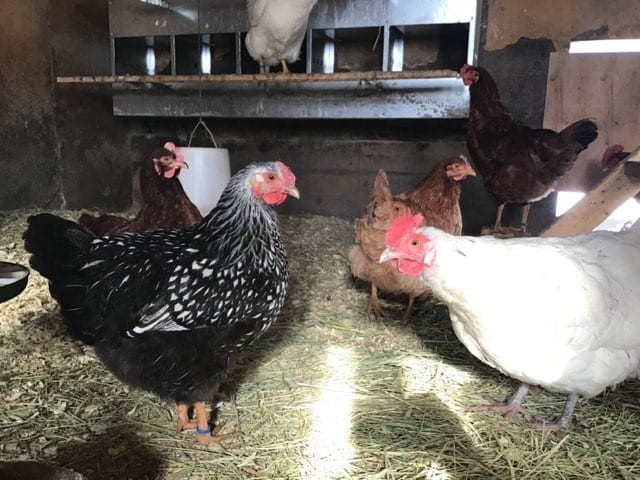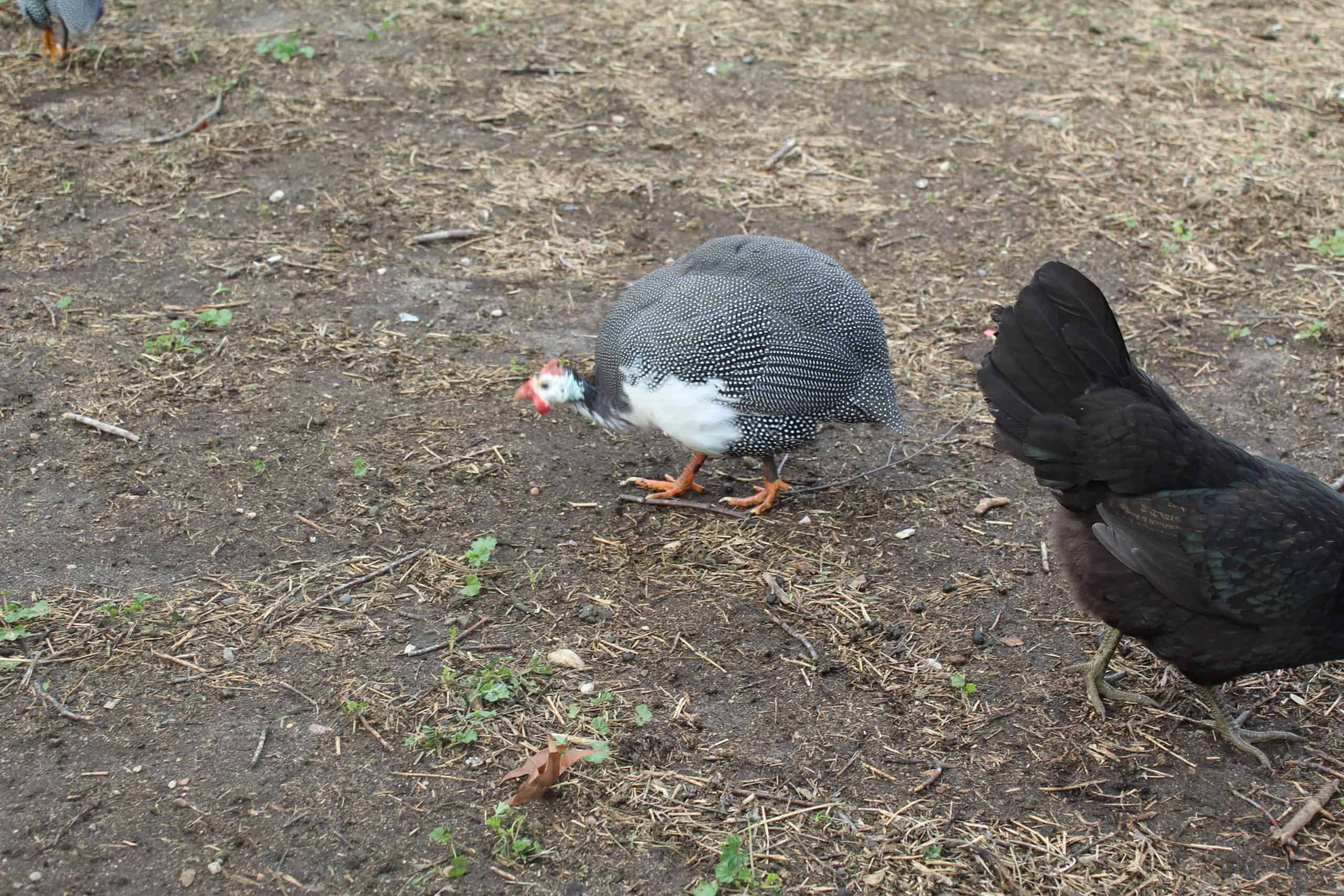Why My Chicken Eggs Didn’t Incubate
If you want to try incubating poultry eggs, there will always be a few that don’t incubate. In our own kitchen we just set a half dozen eggs up to incubate and not a single one worked. I wasn’t surprised. Here’s why these chicken eggs didn’t incubate.
A few weeks ago our favorite hen, Maria, died from predator injuries. She was a really beautiful bird who hatched out chicks for us last year. She was fairly friendly and was our only blue egg layer.

We let our chickens free range so every year there is always one or two that we lose. Most of the time a chicken is just gone and we know a hawk or a fox had them for supper. This time though Maria made it back to the coop. She survived a few days. She ate and drank and I treated her with Blue Coat. Sadly after a few days, we lost her.
Trying to Keep Maria’s Legacy Going
In our house we keep fresh eggs on the counter. I knew we had a few of Maria’s eggs left, so I decided to try incubating them. Unfortunately, I knew the odds were slim because the eggs were quite old and hadn’t moved from their position. I’ll get into why these are issues in a minute.
I gave the eggs a week in the incubator, tending them as best as I could. After seven days I candled the eggs and it was as I feared. Not a single one had successfully developed.
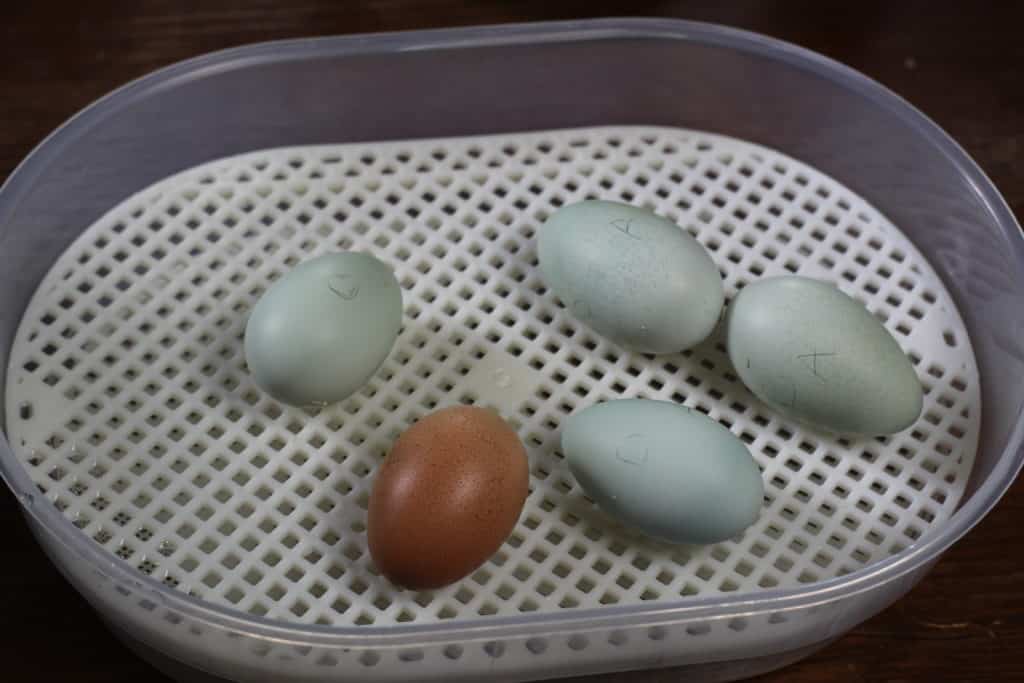
This post contains affiliate links, which means I make a small commission at no extra cost to you. See my full disclosure here.
Why Didn’t My Eggs Incubate?
Let’s look at the key culprits that would prevent your poultry eggs from successfully incubating.
Fertilization
This may sound very simple, but you need a rooster to successfully hatch your own eggs. Hens don’t self-fertilize their eggs. It takes two to tango in most of the animal world and chickens are no different. If you don’t have a rooster, your eggs will not incubate.
If you have a rooster, they may not have fertilized this particular egg. On our farm we have three roosters, so most of our eggs our fertilized.
How can you tell if an egg has been fertilized? Unfortunately you have to crack one open to tell. A fertilized egg has a small white spot on the yolk where the baby chick would start to develop. This is called a “blastoderm” when fertilized. When not fertilized it is called a “germinal disc” or “blastodisc”. The yolk, believe it or not, does not become your chick. The yolk is what your chick “eats” while an embryo.
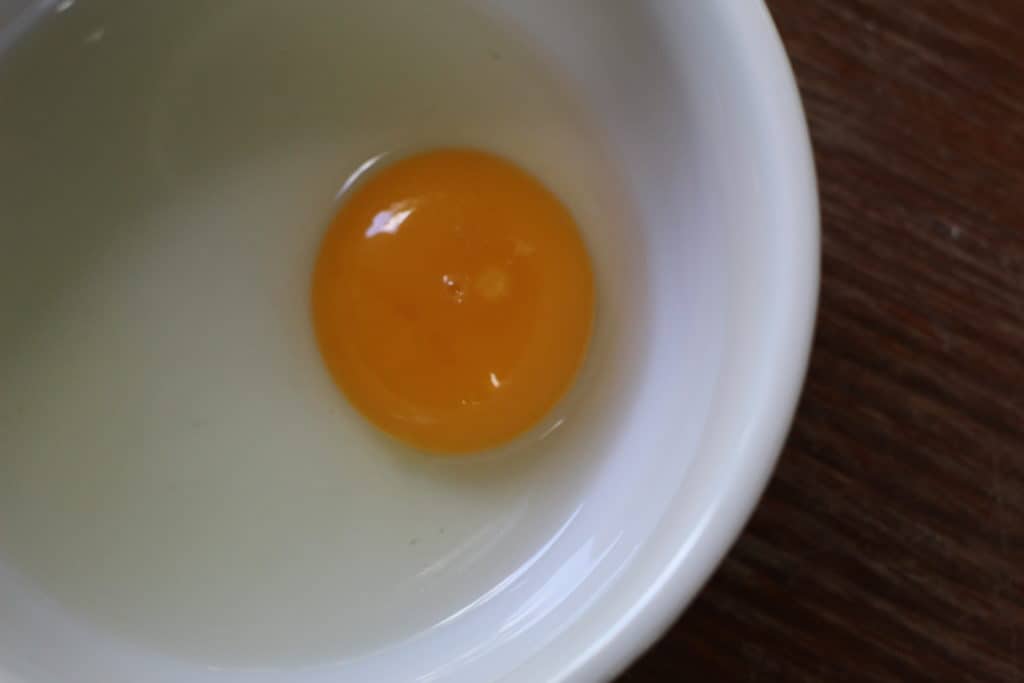
Take a sampling of your eggs. Plan to make an egg bake later and crack open ten eggs and see how many have been fertilized. If most have that little white spot you are good to go. If most don’t, then your rooster isn’t getting busy very often OR you have too many hens for him to manage.
Weak Eggs
Eggs themselves are made to be a perfect little dome for a chick to develop. Still, some can have imperfections that prevent incubation from happening. Shells that appear thin and dotted may allow for bacteria to more easily enter the egg. A small crack would also be an issue.

Eggs that are especially oblong or squat shaped are also not ideal hatching eggs.
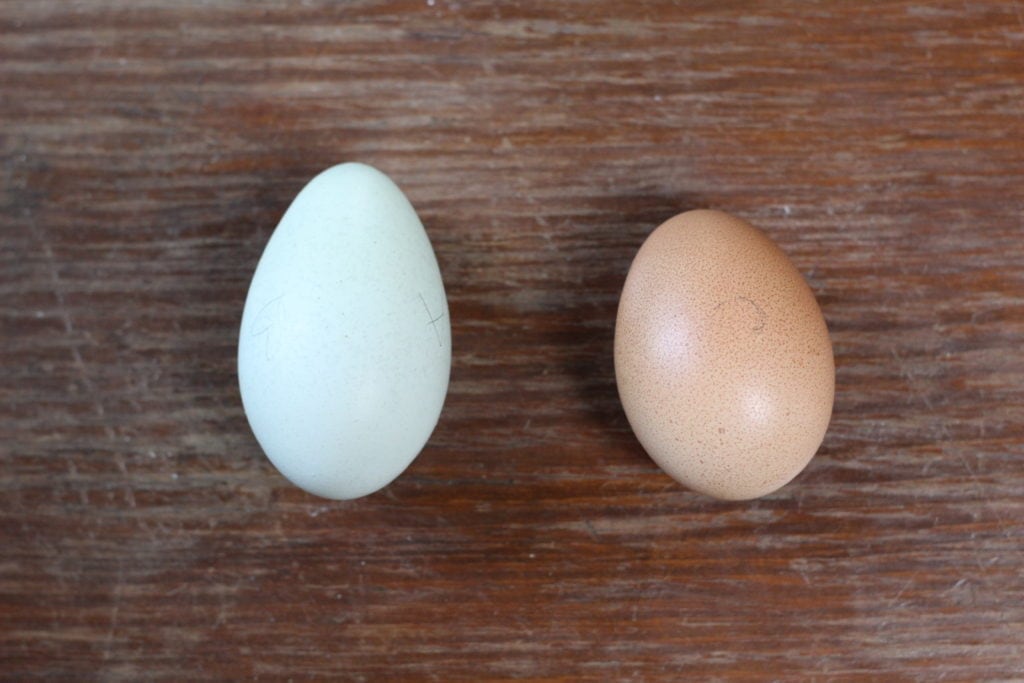
Managing the Eggs
Egg Age. The ideal eggs for incubating are less than one week old. This was likely our main problem with Maria’s eggs, they were all 3 weeks old at least. That alone was enough reason for none of them to incubate.
Frequent Turning. If you are collecting eggs over the course of several days for incubating, turn them over each day. The yolk inside can settle to one egg wall or the other, which might prevent successful incubation or have a chick that doesn’t develop properly. This would be issue number two for our eggs.
Egg Cleanliness. Only incubate clean eggs. Do not wash dirty eggs with water. You can potentially do a small bit of sanding to clean a little dirt from an egg but that’s about it.
Temperature. Keep an eye on the temperature they are stored at. Keep your eggs around 55 degrees Fahrenheit if possible.
Temperature and Humidity in the Incubator

Making sure your incubator is properly running prior to starting your eggs is a necessity. Plug in the incubator and run it for at least 24 hours to make sure it is operating as it should.
If your incubator is still air heat, you want it at about 100- 102 degree with a humidity of 58- 61%.
If your incubator has a fan, you want 98-99 degrees at 56-70% humidity.
Making sure your temperature is stable and that you add water as necessary for the correct humidity, are key elements to successful incubation.
Turning the Eggs
Most incubators will have some form of automatic turner that will rotate your eggs very slowly over the course of the day. If yours doesn’t, you will need to turn your eggs at least twice a day. Label the egg around the middle with A-D using a dull pencil. Each time you rotate the eggs make sure the next letter of the alphabet is facing up.
How do I tell if my Eggs Are Developing Properly?
Take a candler to your eggs so you can see through them. There should be veins and blood vessels visible stretching out along the walls of the egg. See below under resources for a link to ChickScope, which has photos of what you should see when candling an egg each day of its development.
Additional Resources
My all-time favorite resource for chick care is Gail Damerow’s Hatching and Brooding Your Own Chicks. I literally put it on our wedding registry, that’s how good it is.
The Magicfly Incubator works well and fits easilyon your counter top.
Chickscope is another nice resource that shows you images of the chick development you should expect to see in your egg each day. Though I wouldn’t advise handling them that often. Once a week to monitor development is plenty.
I hope this information is helpful for you on your chick hatching endeavors!
Pin it for later!



